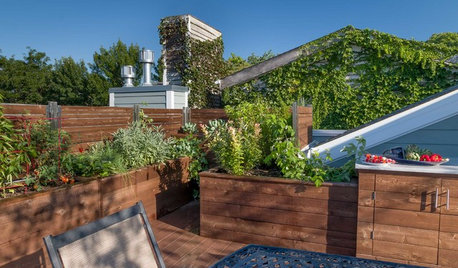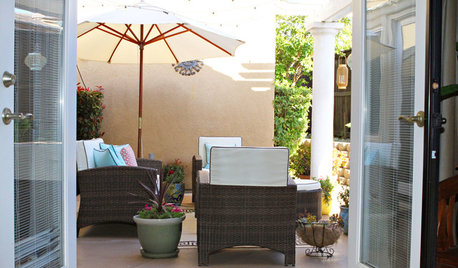Beginning and ending
inkognito
18 years ago
Related Stories

REMODELING GUIDES10 Things to Do Before the Renovation Begins
Prep and plan with this insight in hand to make your home remodeling project run more smoothly
Full Story
TASTEMAKERSWorld of Design: Where Color Trends Begin
Colors go in and out of vogue. Here’s how they make their way into our home decor
Full Story
DIY PROJECTSPocket Hole Joinery, the Beginning Woodworker's Best Friend
Make a wide range of sturdy wooden pieces with just this little bit of know-how
Full Story
GARDENING GUIDES10 Tips for Beginning Gardeners
With a simple sketch, basic tools and the right plants, you’ll be on your way to growing your first flowers or edibles
Full Story
UPHOLSTERYFurniture Clinic: End the Curse of Slouchy Couch Cushions
Prolong the life of your couch with this inexpensive fix that’s so easy, even a beginning sewer can do it
Full Story
HOUZZ TOURSMy Houzz: High End Meets Budget Friendly in Toronto
Splurging selectively and saving elsewhere, a Canadian family gets a posh-looking home that matches their vision
Full Story
KITCHEN DESIGNKitchen of the Week: Double Trouble and a Happy Ending
Burst pipes result in back-to-back kitchen renovations. The second time around, this interior designer gets her kitchen just right
Full Story
DECORATING GUIDESHand-Painted Wallpaper Brings High-End Artistry to Rooms
Exquisite papers painted in glorious detail turn blank walls into expressive canvases conjuring luxury
Full Story
BUDGET DECORATING8 Cost-Effective Ways to Get a High-End Look
Don’t discount that expensive material yet. By using a small amount in a strategic way, you can get a luxurious look without the expense
Full Story
PATIO OF THE WEEKBargain Pieces Take a Sunny Outdoor Room High End
See how a design-savvy homeowner put discount furniture and big-box accessories together for a polished patio look
Full Story





nandina
Eddie_GA
Related Professionals
Wrentham Landscape Architects & Landscape Designers · West Milford Landscape Architects & Landscape Designers · Fairview Landscape Contractors · Fort Worth Landscape Contractors · New Baltimore Landscape Contractors · Rockwall Landscape Contractors · Soddy Daisy Landscape Contractors · Antelope Fence Contractors · Libertyville Fence Contractors · Oxnard Fence Contractors · Sandy Springs Fence Contractors · West Sacramento Fence Contractors · La Verne Fence Contractors · Archdale Stone, Pavers & Concrete · Chesapeake Ranch Estates Stone, Pavers & Concretekatycopsey
poppa
ironbelly1
inkognitoOriginal Author
katycopsey